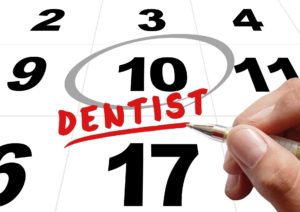With so many adults and children in New Hampshire apprehensive about going to the dentist, IV sedation has become very popular. There are many reasons why we suffer with dental anxiety. Including previous appointments, a disability or special needs, sensitive teeth or gums, a gag reflex, difficulty getting numb, and complex dental issues. But don’t let that keep you or a loved one from getting the oral health care you need.
Before receiving IV sedation
 Before your appointment, you will need to go over your medical history during a one-on-one conversation with your CRNA. This will allow them to get to know you and your concerns. Then determine the best-tailored sedation plan for you. This is also a good time for you to ask any questions or go over any concerns.
Before your appointment, you will need to go over your medical history during a one-on-one conversation with your CRNA. This will allow them to get to know you and your concerns. Then determine the best-tailored sedation plan for you. This is also a good time for you to ask any questions or go over any concerns.
The Day of the dental appointment
Avoid drinking or eating at least six hours before your appointment and wear comfortable clothing
Before the dental procedure, a thin needle is placed into a vein, usually in the arm or hand. The sedative medication goes directly into your bloodstream through an intravenous tube. During your conscious sedation, a qualified third party, such as a CRNA, will monitor your oxygen level, pulse, blood pressure, and vitals. This ensures the appropriate amount of medication is delivered, so there isn’t any adverse reaction.
You will need a friend or family member to drive you home after the appointment. Since you may feel a little groggy.
After the appointment
After waking from your dream like state, you may feel sleepy. Within 30 to 60 minutes after waking you will be safe to go home with another adult and you will be provided with written discharge instructions from your nurse anesthesiologist. For the rest of the day you should rest and drink lots of fluid.
You should not operate any machinery, use any sharp objects, sign any legal papers, or make important decisions that require the full use of your faculties as the medication may impair your judgment for up to 24 hours. You can expect a follow-up phone call later that day from the nurse anesthesiologist that provided your sedation to answer any questions, make sure the sedation was to your satisfaction, and that you are recovering well.
IV sedation can help you tackle your fears and overcome your anxiety to get the dental care you need.


